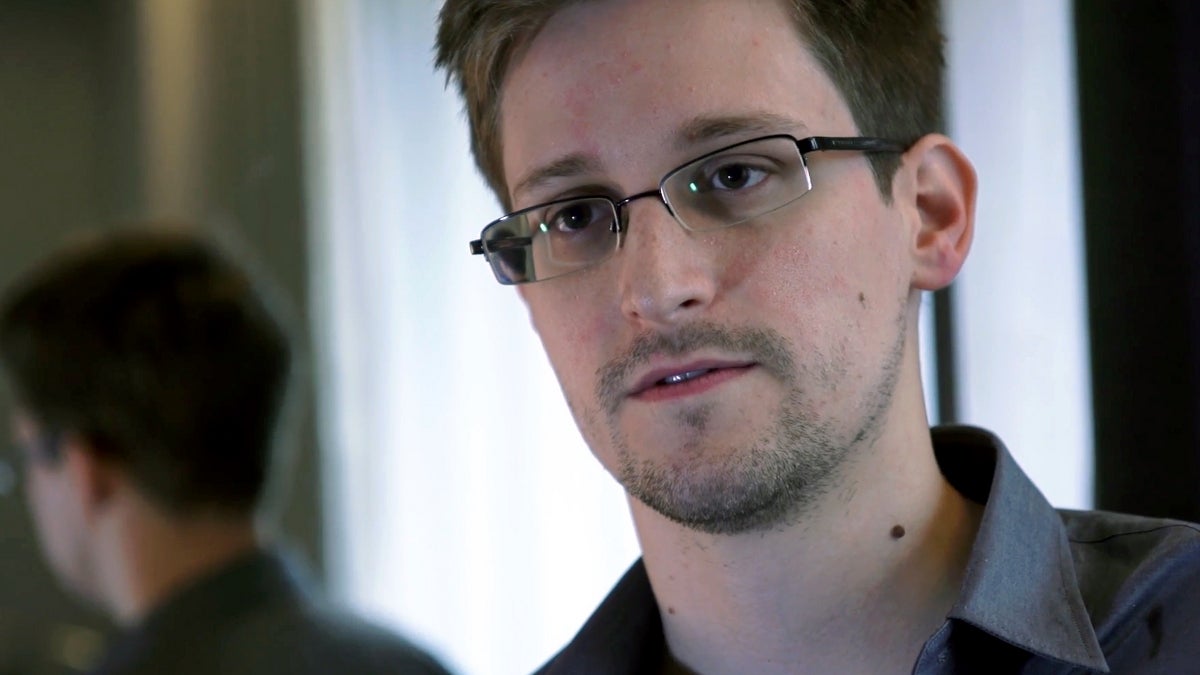Edward Snowden: Hero or traitor?

Edward Snowden, who worked as a contract employee at the National Security Agency, in Hong Kong. (AP Photo/The Guardian)
So what do we think of Edward Snowden, the young computer whiz who blew the lid off the National Security Agency’s domestic surveillance?
Yesterday morning he was anonymous; this morning he has global fame, he is already being lionized and demonized, and the Hollywood suits are probably debating whether the Snowden biopic should star Topher Grace or Shia LaBeouf. Yes, this script writes itself – David assails Goliath and blows his own cover so that he can tell the world about it: “I can’t in good conscience allow the U.S. government to destroy privacy, Internet freedom, and basic liberties for people around the world with this massive surveillance machine they’re secretly building.”
Ah yes, conscience. Now we’re into Henry David Thoreau territory, circa 1846: “The only obligation which I have a right to assume is to do at any time what I think right.” Other whistle blowers, by dint of their actions, have essentially echoed Thoreau.
Snowden, who looks like the guy you see in Starbucks nursing a latte and watching Phish concerts on YouTube, went public Sunday to explain his motives and enlist public support. He said that he leaked classified documents to The Guardian and The Washington Post because he wanted to blow up the “architecture of oppression,” because he wanted Americans to know that “the NSA specifically targets the communications of everyone. It ingests them by default,” and he’s willing to pay a heavy price. In his words, “I could not do this without accepting the risk of prison….I do not expect to see home again.”
The U.S. government has indeed set the machinery in motion to extradict him from Hong Kong, where he has taken refuge, and critics are already heaping him with abuse. Powerline, the popular conservative website, calls him “a true believer of doubtful maturity sunk in his own weird grandiosity.” Max Boot, a prominent neoconservative commentator, calls him “ignorant and delusional…misguided and malevolent,” and concludes: “Far from striking a blow for personal liberty and freedom of expression, he is unwittingly helping the most illiberal individuals in the world – jihadist terrorists – to more effectively attack us.”
Still, it takes serious cajones to spurn a $200,000-a-year job with a billion-dollar private contractor – as well as a girlfriend, family, and a comfy life in Hawaii – to put your freedom and future on the line solely for the sake of righting a perceived wrong. Maybe that’s delusional, but it also fits the standard definition of hero. He’s saying things about technology and government that very few people have been willing to acknowledge:
“It’s getting to the point (with government surveillance), you don’t have to have done anything wrong. You simply have to eventually fall under suspicion from somebody, even by a wrong (phone) call, and then they could use this system to go back in time and scrutinize every decision you’ve ever made, every friend you’ve ever discussed something with, and attack you on that basis, to sort of derive suspicion from an innocent life and paint anyone in the context of wrongdoer.”
I’m not suggesting that Snowden is a saint, or that his thinking is flawless. It’s a tad weird, for instance, that he has fled to a city that’s part of China. Yeah, the American surveillance program is highly disturbing for the reasons he articulates, but, come on dude, China is way worse. The communist government orchestrates the press, tracks its citizens far more intrusively (especially on the Internet), and doesn’t codify (or even grasp) the concept of free speech.
And when Snowden seemingly minimizes the terrorist threat by saying, “There has always been terrorism,” I am tempted to retort with the observation that, yes, there has always been terrorism – like the deadly 1920 bombing of Wall Street – but today’s terrorists have modes of comunications and potential mass weaponry that their predecessors never dreamed of. Heck, those two misfits in Boston wreaked havoc with junk weapons that were built via Internet instruction.
But Snowden has precipitated a long-overdue debate about the proper balance between liberty and security. Somebody had to do it. That debate should’ve taken place in 2001, when the USA Patriot Act was rushed into law, but (as I detailed here last Friday), Congress went belly up. The seeds of the contemporary surveillance state were sown back then, and ever since, through two presidencies, the government has expanded its reach in secret, preferring that Americans not know what was being done in their name. Even if it required lying.
Case in point, US. intelligence chief James Clapper’s Senate testimony on March 12.
Democratic Sen. Ron Wyden asked him a direct question: “Does the NSA collect any type of data at all on millions or hundreds of millions of Americans?” (italics mine)
Clapper: “No, sir.”
Wyden: “It does not?”
Clapper: “”Not wittingly.”
At least Snowden chose candor; in his words, “these things have to be decided by the public, not someone who is hired by the government.” He might well be jailed for his act of idealism – the government probably has to prosecute, if only to deter others from breaching security – but he has struck a blow for checks and balances.
James Madison famously wrote, “If angels were to govern men, neither external nor internal controls on government would be necessary.” In lieu of angels, it’s up to us.
——-
Follow me on Twitter, @dickpolman1
WHYY is your source for fact-based, in-depth journalism and information. As a nonprofit organization, we rely on financial support from readers like you. Please give today.

